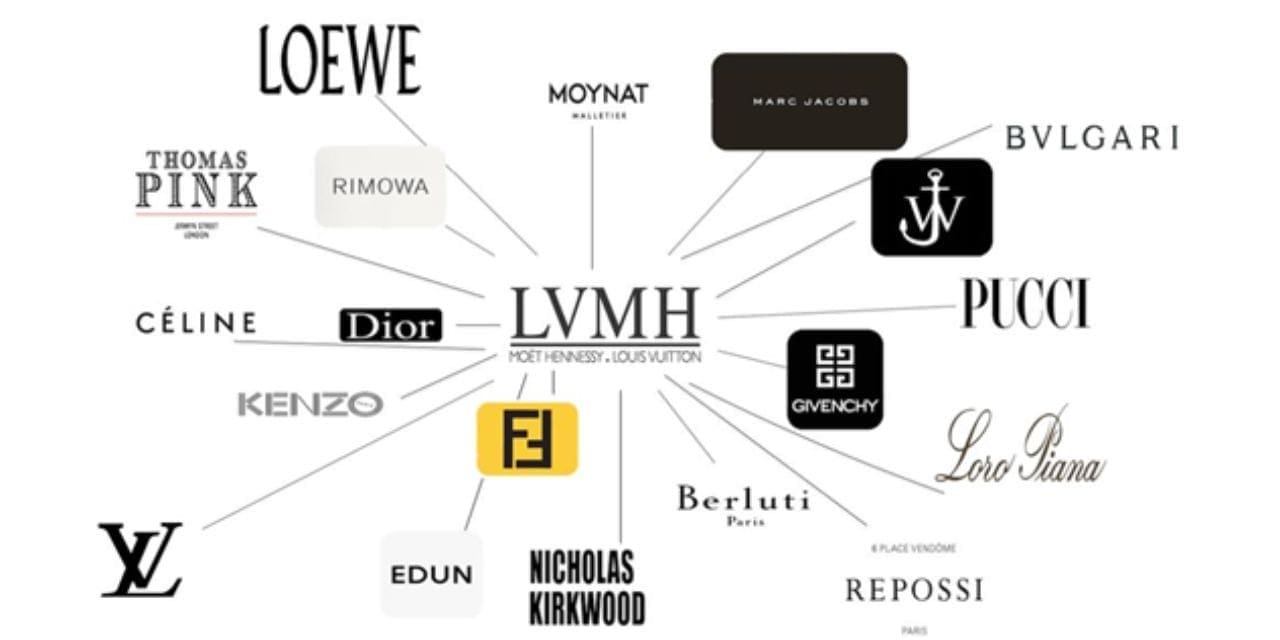The once-resilient luxury sector has faced a notable setback as LVMH Moet Hennessy Louis Vuitton SE, the parent company of renowned luxury brands such as Louis Vuitton and Christian Dior, reported disappointing sales figures, raising concerns within the industry about a potential slowdown. This news sent ripples of unease throughout the luxury sector, which had grown accustomed to stellar growth, with LVMH historically at the forefront. The market’s reaction to this development was swift and harsh, with LVMH experiencing its largest intraday share decline in nearly two years, plummeting as much as 8.5%. This sharp decline temporarily wiped out its substantial gains for the year.
What added to the industry’s concerns was the domino effect that this drop had on other major players in the luxury market. Smaller competitors such as Richemont, the parent company of brands like Cartier and Dunhill, Kering SA (the owner of Gucci), and Hermes International were dragged down alongside LVMH. This decline in performance was especially significant for LVMH as it marked a departure from its usual trend of surpassing market expectations, causing some investors to reevaluate their expectations for the sector.The global luxury goods industry had already begun to lose some of its luster in recent times, driven by factors such as China’s economic slowdown and reduced demand from American consumers. While these signs were concerning, LVMH’s sales figures acted as an accelerant, igniting a selloff that has collectively wiped out approximately $245 billion in market value from Europe’s seven largest luxury companies since April. This sudden deterioration in performance is symbolic of the fact that the luxury sector is not immune to a broader economic slowdown.
LVMH, once Europe’s most valuable company, had recently been eclipsed by Danish drugmaker Novo Nordisk A/S in terms of market capitalization. Additionally, its founder and CEO, Bernard Arnault, lost his position as the world’s richest man to Elon Musk earlier this year. The organic revenue for LVMH’s most significant unit, fashion and leather goods, did increase by 9% in the third quarter. While this is not a dramatic decline, it fell short of analysts’ estimates and marked a noticeable slowdown from the first six months of the year.The results put a damper on any hopes of a robust recovery in demand, particularly in China, and indicated that the weakness had spread across regions. Revenue growth in Asia, excluding Japan, slowed to 11%, a significant decrease from the 34% seen in the previous quarter. Even in Europe, where luxury consumption had been relatively resilient, the growth rate more than halved.
Furthermore, there was a considerable slump in sales within LVMH’s wines and spirits unit, which experienced a 14% decrease, significantly below expectations. This slump had a spillover effect on other companies, briefly sending shares of Cognac-maker Remy Cointreau on a downward spiral. LVMH’s portfolio includes prestigious Champagne brands like Dom Perignon and Hennessy Cognac, with the latter experiencing a decrease in demand in the United States due to resistance against price increases.Jean-Jacques Guiony, the Chief Financial Officer of LVMH, acknowledged during the quarterly presentation that the company had been on a journey to reposition the brand. He mentioned that they have been working on this transformation for the past 12 months, which involved reducing the number of suppliers from 250 factories to 34 and transitioning to a four-season offering with global consistency. The company aimed to reclaim its brand identity, which had eroded over the years.
This revamp has been strategic, focusing on an elegant urban look and aligning the brand around three key pillars: playfulness, modernity, and coolness. Their goal was to develop a pyramid offering, with “Hero” products positioned at the pinnacle of the collection. It’s worth noting that while the brand is repositioning itself, it still offers a range of basics and more affordable products, maintaining a balance between luxury and accessibility.In terms of future expectations, Guiony cautioned investors not to anticipate the continued 30% annual growth rates that the brand had seen in recent years for its second-largest fashion brand, Christian Dior.
Interestingly, LVMH’s decline in performance has led to a shift in its stock valuation. Historically, LVMH traded at a premium compared to technology companies, particularly the tech-heavy Nasdaq 100 Index in the United States. However, it now trades at a discount to these tech giants. This raises questions about the longstanding belief that high-flying luxury stocks were Europe’s counterpart to the dominance of the United States’ technology companies.As LVMH faces this challenging period, the industry is now eagerly awaiting sales figures from its peers, including Hermes and Kering. Hermes, known for its iconic Birkin and Kelly bags that perpetually remain in demand, has historically demonstrated resilience during economic turbulence. This iconic brand has maintained its share price, still up by over 20% for the year.
On the other hand, Kering has undergone transitions with recent management changes and awaits the debut of creations by a new creative director at Gucci, one of its key brands. However, this change in creative leadership will only reflect in the brand’s collections when they reach store shelves in February, and the stock has been down by approximately 10% this year.The luxury sector is now at a crossroads, and LVMH’s recent performance is indicative of broader challenges the industry is confronting. This situation has prompted industry players to reassess their strategies and expectations as they navigate a landscape where luxury may no longer be immune to the global economic currents.

